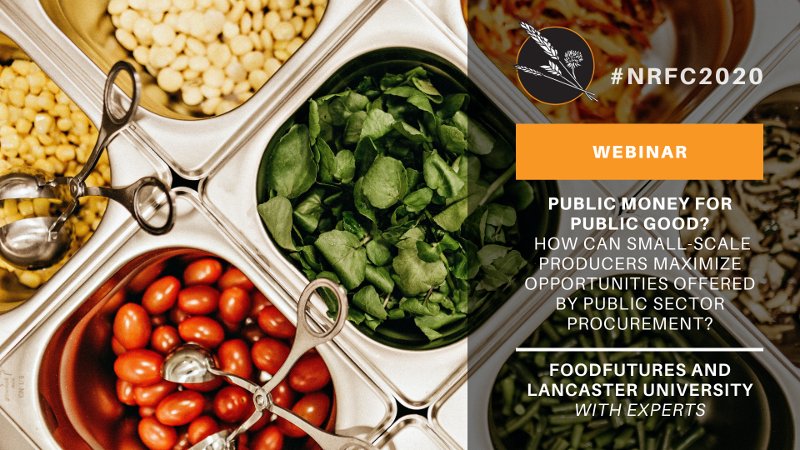Here we explored the concept of public money from public good from a different angle than discussed in most sessions at the conference. We looked at the idea that public sector procurement (and the public money spent) should be invested in food supply chains which enhance our environment and society, whilst providing fair livelihoods both locally and globally. Whilst there is growing pressure on the public sector (and the wider business community) to adopt new practice, there is also development and adaptation needed in the producer side to this story. The focus of our session was on sharing perspectives from five producers with different experiences in accessing local institution procurement, We wanted to learn what is it that enables smaller producers to access procurement contracts, what are the realities of this and what can be learnt from others who have had success doing this.
The session introduced the new approaches being developed nationally by Crown Commercial Services and the National Advisory Board for Dynamic Food Procurement. Capitalising on the potential offered by new technologies around ordering and logistics this collaboration aims to increase the accessibility and flexibility of public sector procurement across the UK. If you are interested in knowing more about the approach and how you can get involved as a producer you can learn more through their website and our video conversation here: https://www.dynamicfood.org/what-we-do. This was followed by perspectives from Lower Hurst farm, The Kindling Trust and The Model Farm in Gothenburg who all have experience providing food for both the public and private sector- as well a Cambridge Food Hub who are in the early stages of developing these routes to market.
We discussed the logistical and practical challenges of supplying to large contracts, and how important working cooperatively with other suppliers was. The risk of relying on one market which can drop away (such as has been the case with schools, universities during CoVid-19) was highlighted as was the importance of having diversity of markets for protecting a business. The value of having strong relationships and space for conversation between growers, procurers, chefs and others was a really key message in this session. This gives you an understanding of the needs of your market but working more closely provides a chance to learn from each other and more supportive relationships where the buyer is connected to your business and ethos.
You can watch the recording of the session here.

